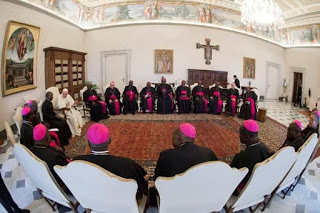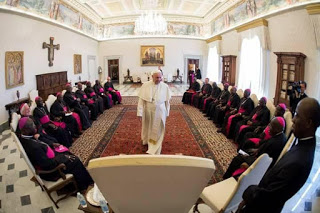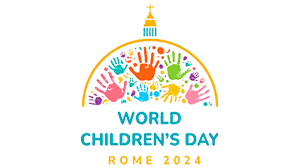UGANDA: Catholic Bishops to start new national television

The Catholic Bishops of Uganda have announced their intention to start a new national Catholic Television.
In a press statement that was released on June 8, 2018 by the bishops after their annual Plenary Assembly held from June 4-8, 2018 in Kampala, the prelates said they are in the process of establishing a national Catholic television, called Uganda Catholic Television (UCT).
“We take this opportunity to announce that as a Catholic Church, after getting a license from the Uganda Communications Commission, we are now in the process of establishing a national Catholic Television called Uganda Catholic Television (UCT),” the bishops said in a press statement that was signed by the chairman of the Uganda Episcopal Conference, Most Rev. John Baptist Odama, also the Archbishop of Gulu Archdiocese.

in Rome during their Ad Limina Visit
They further said that the new television will be tailored to promote the work of evangelization and integral human development in the country. The bishops, who are currently in Rome for their visit Ad Limina Apostolorum (to the thresholds of the apostles), are appealing to all Catholic faithful and all people of good will to support the television project and to pray for its success.
Ad Limina Apostolorum is a periodic visit usually held every five years, whereby the bishops of a given country, make to the tombs of the apostles Peter and Paul in Rome and to the Holy Father (the successor of Peter), sharing with him the situation of the local Church and seeking his guidance. The church leaders left for Rome on June 12 and are expected to return on June 23 after meeting Pope Francis and discussing various issues in their respective dioceses. They have called upon every faithful for prayers during their visit.
The last Ad Limina of the bishops from Uganda was in March 2010, during the leadership of Pope Benedict XVI.
Meanwhile, in the same press statement, the bishops have called upon the Ugandan Government and all security agencies to scale up their efforts to protect the life and property of Ugandans. The prelates noted that for some time now there has been an increase in kidnappings, organized crime and killings in the country.
They have also observed that the government has worked out a new National Sexuality Education (NSE) program which gives guidelines to schools, showing the content and the various age brackets when sexual information and life skills are to be imparted to the pupils. However, they have said that the NSE program, though containing some valid ideas and guidelines, fails to answer some crucial questions and address in an adequate manner some important issues.
“We point out, among other aspect that: the vital role of the family, especially in the early ages is ignored in this document and that it exposes children ages 3-5 years to “content and life skills which are not appropriate for their age,” reads parts of the statement.
Furthermore, the church leaders said, the information and life skills provided for upper level students are “open to interpretation and practices which may be contrary to moral Christian values.” They also added that the program provides “no provisions or guaranties that school teachers are prepared and able to teach in a balanced and proper way such delicate and emotionally charged topics.”
They further stated that the NSE document is now undergoing a final evaluation by Catholic experts who are compiling suggested amendments to the program.
However, should the document remain unchanged, with provisions and directives contrary to the Christian values shared by the Catholic Church, Church of Uganda and the Orthodox Church, the prelates have emphasized that the document will not be introduced and taught in their Christian-founded schools.
The bishops have also raised their concern on the current situation of the refugees in the country. They said that they have considered the need of providing the refugees with adequate pastoral and spiritual care hence, are calling for a generous move by the diocesan priests and members of religious congregations present to volunteer and go at least for some time to work in the refugee camps, in collaboration with the local clergy.
“We shall see how to properly coordinate this move and effort but, as a family of God walking in His light, we cannot just go ahead alone, forgetting and leaving our brothers and sisters without the light of the Word of God and the vital grace of sacraments,” the bishops said.
∽End∽
By Jacinta W. Odongo, Media Officer, UEC


